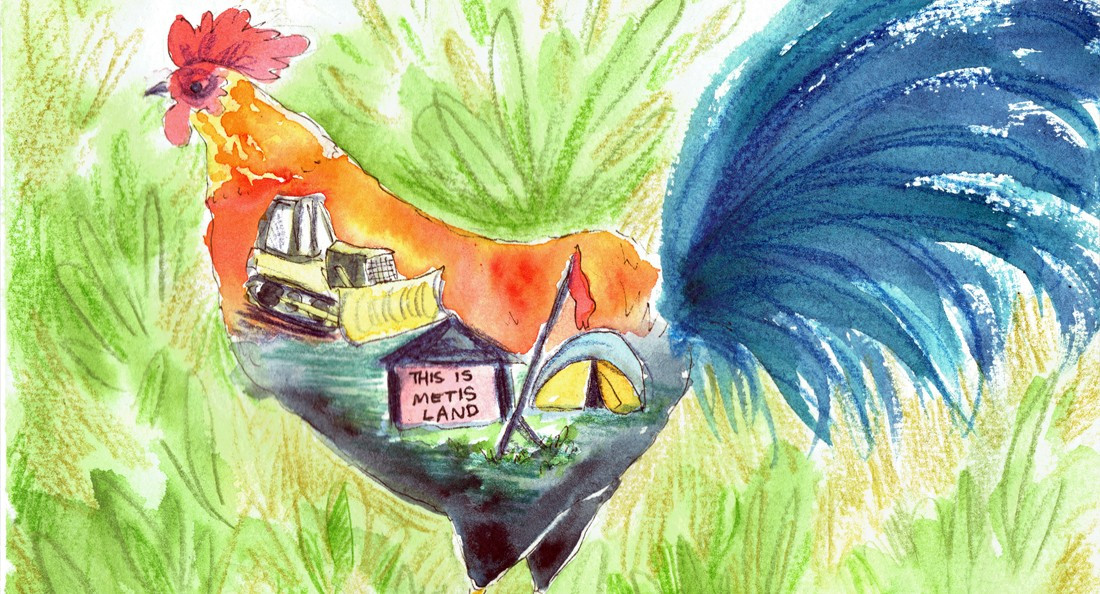Halfway to somewhere
Acknowledging the land
Earlier in October, the Parker Wetlands were bulldozed, and a lawsuit was filed against 49 of the land defenders who had peacefully occupied this historic Métis land and ecological zone. The Parker Wetlands are connected to what used to be Rooster Town, a Métis community that was also bulldozed in the ’50s to make way for the construction of Grant Park Shopping Mall.
The wetland was acquired by Gem Equities in 2009 in a controversial land transfer with the City of Winnipeg. But regardless, they did have “rights” to the land, so business is business right?
As this situation unfolded, a deep contradiction in the way settlers relate to the land they live on was exposed. These days, it’s fairly common to hear land acknowledgements at the beginning of public gatherings, which is a great way of calling us to remember a reality that many have tried to brush into the past.
However, at the same time that we’re recognizing the histories of the land we gather on, the land itself is being treated as a commodity, and as something to be bought and sold for profit regardless of the communities who have claim to it.
If land is managed in such a way that a company has legal “rights” to sue the Parker Wetlands land defenders rather than engaging in dialogue with them, then our actual relationship to the land is in direct contradiction with the sentiment expressed by giving land acknowledgments. The offering of land acknowledgements can slide into becoming a convenient way for settlers to feel good about themselves.
Instances of contemporary colonialism like this lawsuit should serve as a wakeup call to settlers to put the sentiments they express when giving these acknowledgements into concrete action.
Being the first generation of my family to grow up on the prairies, it can be easy to not think about the histories of the places I inhabit, to become too caught up in myself to see the roots that exist here. This is something that I and all other settlers need to start becoming more aware of.
If the living history of a place is not valued, then it can become easy to objectify it. If land is only valued for its prospect of profits, then how can settlers ever claim to be in good relations with Indigenous people? Is this too radical an approach? Or are these the questions settlers need to start asking themselves if they want to be honest in calling this shared space their home?
For a country with a painful history of colonization like Canada, the idea of who has “rights” to the land is a whole lot more philosophically complicated than many profit-centred developers would like to believe. There needs to be a much larger conversation about how settlers interact with land and this conversation needs to prioritize listening to communities who have never been given rights, or who have had them taken away.
It sets a concerning precedent that 49 land defenders can be sued for objecting to the bulldozing of historic Métis land, when the Métis people have struggled to access land they were promised for almost a century and a half. The land defenders are currently fundraising on GoFundMe to raise money for their legal costs.
When land acknowledgements are given, perhaps settlers should start connecting the treaties and promises that were broken in the past to the treatment of land in the present.
Jase Falk is a genderqueer student, artist and ex-Mennonite from Winnipeg.
Published in Volume 72, Number 8 of The Uniter (November 2, 2017)








